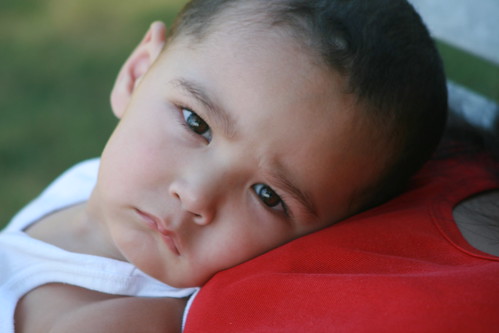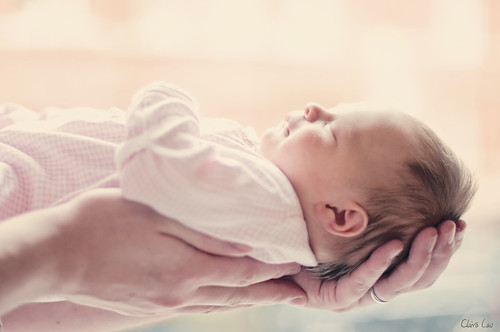
Today is National Children’s Mental Health Awareness Day, so I thought it might be appropriate to do some myth-busting around babies and mental health issues:
Myth: Infants and Toddlers aren’t at risk for developing mental health problems such as depression.
Fact: In February of this year, the American Psychological Association published research indicating that infants and toddlers can suffer serious mental health disorders, such as depression, yet they are unlikely to receive treatment that could prevent lasting problems.
Myth: Young children are naturally resilient, and usually grow out of behavioral problems and emotional difficulties.
Fact: According to Joy D. Osofsky, Ph.D., of Louisiana State University, and Alicia F. Lieberman, Ph.D., of the University of California, San Francisco, “Mental health risks to infants are magnified by the fact that “the youngest children, from birth to age 5, suffer disproportionately high rates of maltreatment with long-term consequences for mental and physical health, but pediatric health and child care providers seldom identify or refer children under 5 years old to mental health services.”
Myth: Infants cannot have mental health problems “because they lack a mental life.”
Fact: Even young infants can react to the meaning of others’ intentions and emotions because they have their own rudimentary intentions and motivating emotions, according to an article by Ed Tronick, Ph.D., of the University of Massachusetts, Boston, and Marjorie Beeghly, Ph.D., of Wayne State University.
Myth: Trauma is the main cause of mental illness in babies and toddlers.
Fact: The everyday life and ongoing interactions between infants and parents or other caregivers, has a huge impact on the development of mental health issues in babies because, “Infants make meaning about themselves and their relation to the world of people and things, and when that “meaning-making” goes wrong, it can lead to the development of mental health problems. Some infants may come to make meaning of themselves as helpless and hopeless and may become apathetic, depressed, and withdrawn. Others seem to feel threatened by the world and may become hyper-vigilant and anxious. Apparent sadness, anger, withdrawal, and disengagement can occur “when infants have difficulty gaining meaning in the context of relationships.” (Tronick and Beeghly)
In recent years, there has been a huge focus on understanding and optimizing the development of children, but often the emphasis is on developing their cognitive (thinking or reasoning) skills. While strong cognitive abilities are necessary for academic success, there is a growing awareness of how crucial it is for young children to develop social–emotional competence in order for them to thrive in school and in life.
Awareness and education are the keys to making a positive difference in the lives of all young children. It is imperative that both parents and caregivers be aware of the need, and learn strategies for fostering the nurturing adult–child relationships that lead to social competence, mental health, and resilience in young children.
Magda Gerber’s approach to child care nurtures the development of resilient, emotionally healthy babies, and their ability to develop social competence through mutual respect, trust, and acceptance. It is “like preventative medicine, and it’s therapeutic for both parent and child.”
This year, the 22 Annual RIE Infant/Toddler Conference to be held on Saturday, May 14, 2011, in Los Angeles, will feature a keynote address by Alicia F. Lieberman Ph.D., entitled “Helping Young Children Cope with Stress and Trauma.”
For further information and reading about National Children’s Mental Health Awareness Day, please see Amy Webb’s post over at The Thoughtful Parent.
